PRAISE FOR AMONG THE MAASAI

This is a credible, brave work that reflects the stark realities faced by girls from the majority of Maasai society and the hurdles they face to achieving educational liberation.
NENGAI LAZARO BENTON, English teacher and graduate of the Maasai Secondary School for Girls
Juliet Cutlers insights into the lives and challenges of the Maasai people make for a compelling read and honest look behind the veneer of village life often seen by tourists.
LISA BROCHU AND TIM MERRIMAN, PHD, coauthors of The Leopard Tree
A thoroughly engaging and meaningful look into the struggles confronted by many indigenous societies today and the challenges faced by the educators who are at the forefront during these rapidly changing times.
KENNETH CUSHNER, EDD, author of Teacher as Traveler
This fascinating memoir chronicles the courage and tenacity of a young couple teaching in the heart of Africa. Juliet Cutler presents a frank account of the moral dilemmas she encounters as she plunges into a tribal society where young girls face many challenges, yet generosity thrives. Prepare to be inspired by the true stories of girls who struggle against repressive traditions to become educated young women making a difference in the world.
GAYLE WOODSON, author of After Kilimanjaro
With courage, Juliet Cutler confronts the complexities of privilege, race, culture, and self-doubt, as well as the paradox of helping others. She emerges transformed by lifelong friendships and with the conviction that empowering local leaders makes a profound difference. Among the Maasai is a compelling must-read for anyone working in developing countries.
DEB GRIFFIN, LCSW, former chair of La Gonave Haiti Partners
Few writers are gifted with Cutlers graceful ability to step back when necessary, balancing between her roles as narrator, observer, and participant. Among the Maasai is a must-read for anyone dedicated to the uplifting of women by women, the gender-education gap, and the beauty of perseverance.
CAMILLE GRIEP, author of New Charity Blues and Letters to Zell
This brave and heartfelt account of Juliet Cutlers journey in Tanzania is an inspiring and important work. Through the intersection of her story with the extraordinary experiences of her young Maasai students, Juliet reveals the transformative power of education.
HERTA FEELY, author of Saving Phoebe Murrow
Juliet Cutler observes complex juxtapositionsintersections of wealth and poverty, modern and traditional, insider and outsider. She asks herself difficult questionsabout her place in the business of helping, her motives, and the limits of her role as a teacher from a different culture. But there is powerful sophistication in her questions and in this beautiful account of transformation.
DAUDI MSSEEMMAA, senior adviser to Mwangaza Education for Partnership
This book is beautifully written and should be on the prescribed reading list for all schools. It made me laugh and cry as I feverishly turned the pages. I loved it.
LUCINDA E CLARKE for Readers Favorite
AMONG THE MAASAI


Copyright 2019 Juliet Cutler
All rights reserved. No part of this publication may be reproduced, distributed, or
transmitted in any form or by any means, including photocopying, recording, digital
scanning, or other electronic or mechanical methods, without the prior written
permission of the publisher, except in the case of brief quotations embodied in critical
reviews and certain other noncommercial uses permitted by copyright law.
For permission requests, please address She Writes Press.
Published 2019
Printed in the United States of America
ISBN: 978-1-63152-672-5
ISBN: 978-1-63152-673-2
Library of Congress Control Number: 2019938034
For information, address:
She Writes Press
1569 Solano Ave #546
Berkeley, CA 94707
Interior design by Tabitha Lahr
She Writes Press is a division of SparkPoint Studio, LLC.
All company and/or product names may be trade names, logos, trademarks,
and/or registered trademarks and are the property of their respective owners.
Names and identifying characteristics have been changed to protect the privacy of
certain individuals.
For the students and graduates of the Maasai Secondary School for Girls
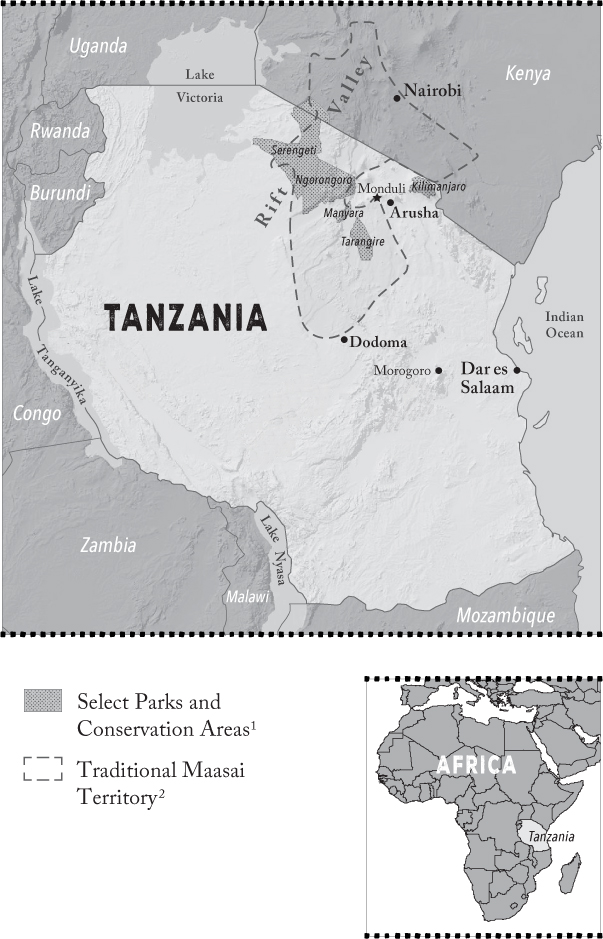
The choice is not between change or no change, the choice for Africa is between changing or being changed.
Julius Nyerere, President of Tanzania, 19641985
One child, one teacher, one book, and one pen can change the world.
Malala Yousafzai

CONTENTS

FOREWORD

E ducation has the power to transform. There are many ways that I know this is true. In 1999, as a naive twenty-something American teacher, I went to Tanzania to teach at a school for Maasai girls with this conviction, and today my experience has borne out what research in the field of international development confirms: the single most transformative intervention for poverty alleviation is education, particularly for girls in the developing world.
As anyone who has ever taught will tell you, learning is frequently a reciprocal process. Teachers can be transformed alongside their students, and perhaps there is no better testing ground for this than in an unfamiliar context, when teachers step outside of what is comfortable. Though my Maasai students probably didnt realize it, they certainly taught me as much as I taught them. From them, I learned about determination and hope, about community and family, and about generosity and hospitality. I learned that poverty and wealth are about more than money, and that walking with people is far more powerful (and difficult) than offering charity.
When I first conceived of the idea for this book, what concerned me most was accurately conveying the reciprocal learning that took place between me and my Maasai students and Tanzanian colleagues. It felt like a tremendous responsibility to tell this story, and I frequently sought their counsel and advice throughout the writing process.
Some chapters describe events that I heard about from them and are, therefore, based on interviews. In translating these interviews into narrative form, I took some liberties in describing scenes and emotions that I was not present to witness. Several Tanzanians, including most of those described in the book, have reviewed the manuscript and provided insights into my descriptions. I have made every attempt to make the descriptions as accurate as possible based on their feedback. However, any inaccuracies are certainly mine.
I must acknowledge that I am neither Maasai nor Tanzanian; thus my descriptions and characterizations throughout the book are written from my perspective as an American woman who lived in Tanzania for the better part of two years and who has remained connected to the country as an advocate and fundraiser for twenty years. I have made every effort to write an evenhanded and objective account of what I have experienced and come to understand about Tanzania and the Maasai. Nevertheless, it would be impossible for me to entirely cast off my cultural biases and opinions about issues such as female genital cutting, polygamy, early marriage, gender discrimination, and certain Tanzanian policies related to education. In the presentation of these issues, I have endeavored to be as transparent as possible.


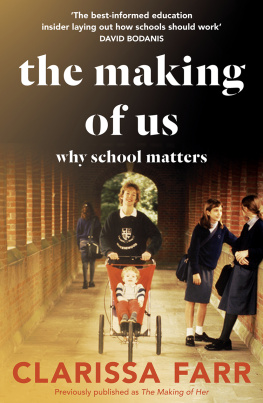

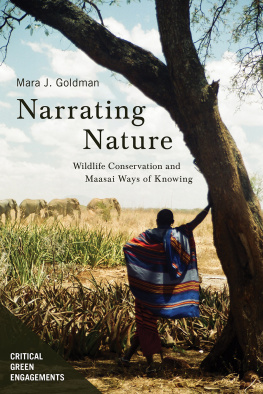

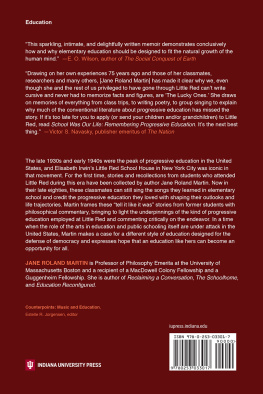
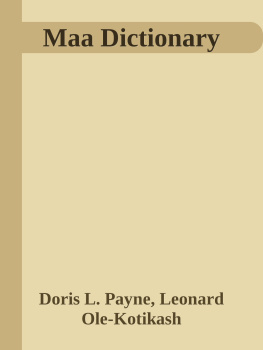
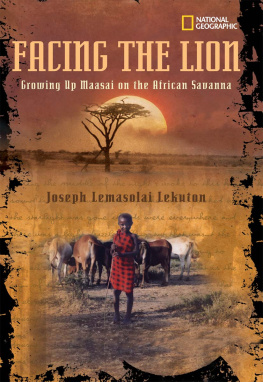
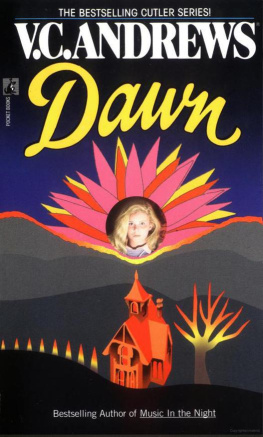



 CONTENTS
CONTENTS